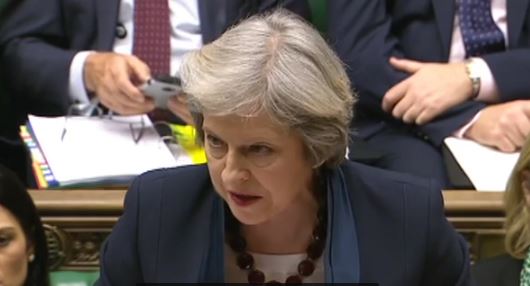Call for focus on NHS during snap election

Theresa May has called for a snap election on 8 June, a move aimed at boosting her Conservative government's majority as it pushes ahead with Brexit.
The announcement has come as a surprise, as May had previously insisted there was no need for an election before 7 May 2020, the date determined by the 'fixed term' election legislation established by her predecessor, David Cameron.
But May has clearly calculated that this is ideal time to capitalise on the Conservative's huge lead - opinion polls on voting intention showing the Conservatives way out ahead on 44%, with Labour far behind on 23%, the Lib Dems on 12% and UKIP on 10%.
The election is also likely to be seen as a proxy second referendum on Brexit - although May is going to the electorate before any of the difficult negotiations with the EU begin.
So how might the general election affect the pharmaceutical industry and its customer, the NHS? The pharma industry has been quick to warn that key issues such as the health service should not be forgotten.
The Association of the British Pharmaceutical Industry’s stance on Brexit is well publicised – it was squarely in the Remain camp and has since called for close alignment with the EU in regard to regulation of drugs, and barrier-free trade.
But after May announced the snap election , the ABPI was one of many voices urging politicians to improve NHS services.
The ABPI has become increasingly frustrated with a lack of access to the latest drugs on the NHS and argues that patients face barriers to treatment with novel medicines, even if they have been backed by the cost-effectiveness watchdog, NICE.
A further attempt to limit drug spend by forcing industry to renegotiate on price should sales of a drug exceed £20 million in the first of its three years on the market will discourage research and investment from pharma, the ABPI said.
In a statement the ABPI noted the industry is “key to the strength of the UK economy and the health of UK patients.”
“The ABPI will be calling on all political parties to pledge to create an NHS that delivers improved access to the new medicines our companies research, develop, and manufacture.”
While the statement did not address Brexit directly, the ABPI said the government “must be decisive in making sure the UK keeps its position as a location of choice for the global pharmaceutical industry.”
There are fears that Brexit and the likely split from the European drug regulatory system will further deter pharma from researching and launching drugs in the UK.
While NHS organisations are unable to comment because the government has entered the pre-election purdah period, doctors have called for the government to address the funding crisis facing the NHS.
A lack of funds in the NHS and social care caused a worst-ever performance against A and E waiting targets and patients face increasingly long waits for routine operations.
Dr Mark Porter, BMA council chair, said: “Our health and social care systems can no longer cope without urgent action. We call on politicians of all parties not to duck this crisis any longer, and instead to outline credible and sustainable plans that will safeguard the future of the fully funded and supported NHS that staff want and patients deserve.”
In order to hold the election, the Prime Minister must first gain a two-thirds majority in the House of Commons in favour of repealing the Fixed Term Parliaments Act of 2011. But support for the election from Labour and the Lib Dems suggests this should be easily achieved.












